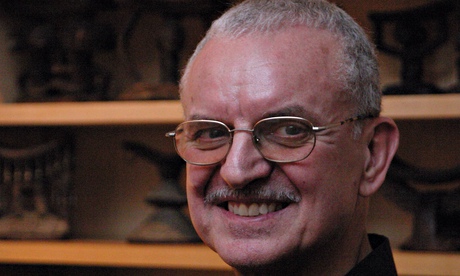
My father, Martin Hill, who has died of cancer aged 71, championed
human rights in Africa for more than 32 years during his career with
Amnesty International.
He was instrumental in exposing the human rights violations committed in Ethiopia and Eritrea by the Derg military force, many of whom were subsequently convicted of genocide and crimes against humanity. He campaigned tirelessly for the release of dozens of prisoners of conscience, including Netsanet Belay, who is now Amnesty International’s Africa research and advocacy director.
Martin, who was based at the Amnesty secretariat office in London, helped human rights activists in east Africa, including those in Somalia who sought to build a human rights foundation in a country with no central government. He was a founding member in 2005 of the East and Horn of Africa Human Rights Defenders Project.
His commitment and compassion touched all those with whom he worked. He was greatly respected by the survivors of human rights violations and the victims’ families.
Martin was born in Leeds, to Dudley Hill, a clergyman, and Nancy (nee Bates). From Durham school he went to Downing College, Cambridge, where he graduated in classics. He inherited his parents’ musical talents and was an accomplished pianist.
In 1965 he went to teach English in Uganda. He subsequently lived in Kitui, Kenya, with the Kamba people and wrote a dissertation that earned him a PhD in social anthropology from the London School of Economics. In 1976 he joined Amnesty and worked as a researcher on east Africa, and especially the Horn of Africa, until his retirement in 2008.
During his time at Amnesty, he taught at the University of London and was a visiting research fellow at the Institute of Commonwealth Studies. After retiring, he continued to work on human rights in Africa and wrote reports on minority rights in Somalia, trials in Ethiopia and child soldiers in Eritrea.
Martin was passionate about gardening and RHS flower shows. He loved art and music, and delighted in his collection of African headrests. He was on the council of the African Studies Association and the Anglo–Somali Society and was a keen supporter of the Black Cultural Archives, in Brixton, south London.
He is survived by his wife, Dawn, whom he met at the LSE and married in 1972, and by two children, Andrew and me, a grandson, Lewis, and his sister, Rachel.
He was instrumental in exposing the human rights violations committed in Ethiopia and Eritrea by the Derg military force, many of whom were subsequently convicted of genocide and crimes against humanity. He campaigned tirelessly for the release of dozens of prisoners of conscience, including Netsanet Belay, who is now Amnesty International’s Africa research and advocacy director.
Martin, who was based at the Amnesty secretariat office in London, helped human rights activists in east Africa, including those in Somalia who sought to build a human rights foundation in a country with no central government. He was a founding member in 2005 of the East and Horn of Africa Human Rights Defenders Project.
His commitment and compassion touched all those with whom he worked. He was greatly respected by the survivors of human rights violations and the victims’ families.
Martin was born in Leeds, to Dudley Hill, a clergyman, and Nancy (nee Bates). From Durham school he went to Downing College, Cambridge, where he graduated in classics. He inherited his parents’ musical talents and was an accomplished pianist.
In 1965 he went to teach English in Uganda. He subsequently lived in Kitui, Kenya, with the Kamba people and wrote a dissertation that earned him a PhD in social anthropology from the London School of Economics. In 1976 he joined Amnesty and worked as a researcher on east Africa, and especially the Horn of Africa, until his retirement in 2008.
During his time at Amnesty, he taught at the University of London and was a visiting research fellow at the Institute of Commonwealth Studies. After retiring, he continued to work on human rights in Africa and wrote reports on minority rights in Somalia, trials in Ethiopia and child soldiers in Eritrea.
Martin was passionate about gardening and RHS flower shows. He loved art and music, and delighted in his collection of African headrests. He was on the council of the African Studies Association and the Anglo–Somali Society and was a keen supporter of the Black Cultural Archives, in Brixton, south London.
He is survived by his wife, Dawn, whom he met at the LSE and married in 1972, and by two children, Andrew and me, a grandson, Lewis, and his sister, Rachel.
No comments:
Post a Comment